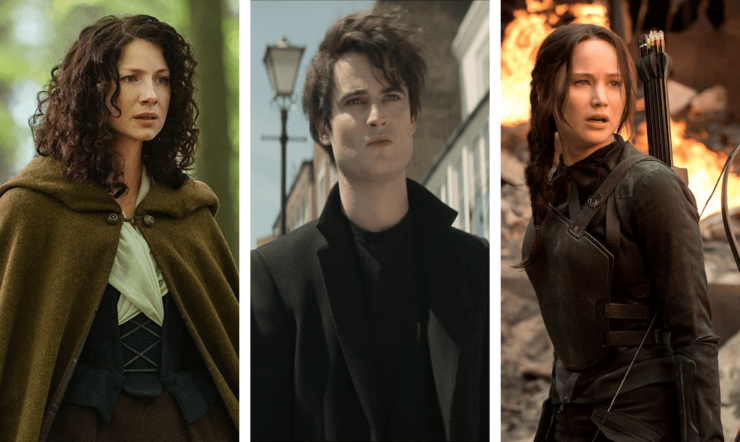As an author, it’s hard to let go of your words. But authors fortunate enough to adapt their own works can hold onto their stories and help to shape them a little bit longer (and add some shiny new credits to their IMDb pages in the process). But not every writer gets a shot at self-scripting; Hollywood loves to work with familiar names, and sometimes authors lack the skills or experience necessary to translate their fiction into a whole other medium.
So while we eagerly await the upcoming self-adaptations from the likes of N.K. Jemisin (The Broken Earth trilogy); Amal El-Mohtar and Max Gladstone (This Is How You Lose the Time War); and George R.R. Martin (maybe? It’s kind of hard to keep track…), let’s look at six fantasy and science fiction writers who brought their books (and shorter works) to the big and small screen, albeit sometimes with a little help.
Peter S. Beagle
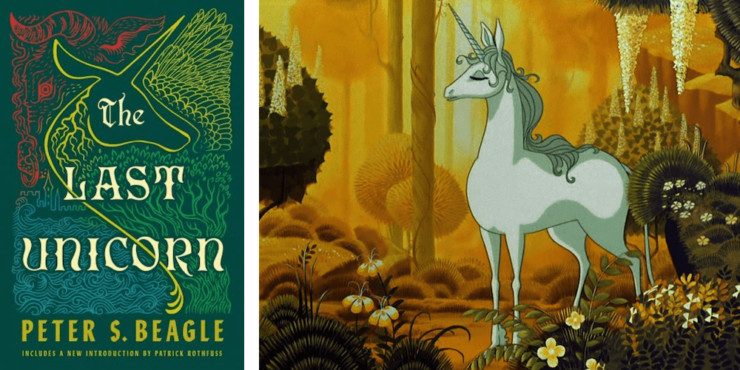
If anyone was going to adapt Beagle’s 1968 fantasy classic The Last Unicorn, few could have done it justice better than Beagle himself. By the early 1980s, he’d already had rough experience with animated adaptations—in a 2007 interview, he recalled being given a “skimpy payment” for a “consultant’s fee” to beef up Chris Conkling’s script of Ralph Bakshi’s The Lord of the Rings (1978) and noted that “I wrote and rewrote that script God knows how many times, eight or nine at least.” But he learned a few things from that experience: “Animation […] hates to stand still. Animation does not deal well with backstory […] it has to move,” he told Fantasy Magazine in 2006.
Alas, he didn’t have much of a say in who ultimately made the film version of The Last Unicorn—producer Michael Chase Walker had sold the rights to Rankin/Bass (most famous for their stop-motion holiday specials like Rudolph the Red-Nosed Reindeer, among other animated films and television shows). In 2014, Beagle told interviewer Aaron Golden that after learning the news he’d screamed, “Why didn’t the hell you just go with Hanna-Barbera?” For years after Unicorn was released, Beagle would say only that “it was better than I expected,” but appears to have softened and gained perspective on the movie in the ensuing decades: In 2011, he admitted to Animag Online, “The bloody thing’s a classic.”
Suzanne Collins
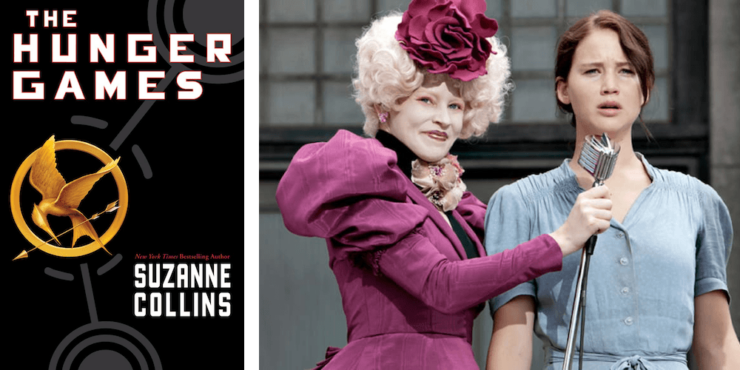
Collins didn’t arrive in Hollywood as a complete newbie after the phenomenal success of The Hunger Games, the first book in a trilogy that includes Catching Fire and Mockingjay: She started her career writing for kids TV shows like Clarissa Explains It All. But when it came time to turn all three books into four movies (Mockingjay is a two-parter), she was able to adapt the first novel into a screenplay. After writing the initial treatments and first draft, writer/director Billy Ray came on board for some additional drafts, and then the director Gary Ross developed their work into his shooting script. “The hardest thing for me, because I’m not a terribly visual person, was finding the way to translate many words into few images,” Collins told The New York Times in 2018. IMDb indicates she also worked on the adaptations for both Mockingjay films, though not Catching Fire, and has received a partial screenplay credit for the prequel due later this year, The Hunger Games: The Ballad of Songbirds and Snakes.
H.G. Wells
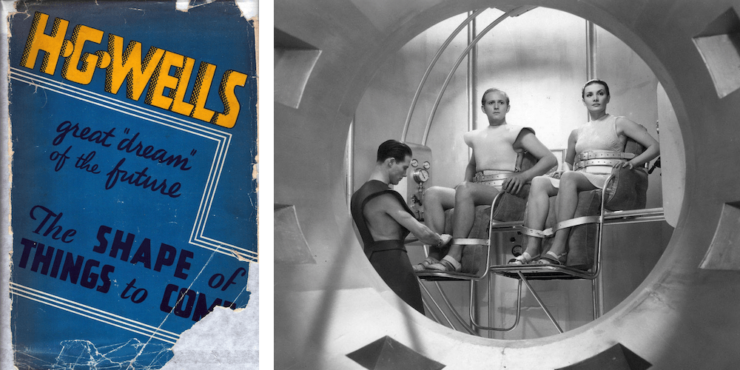
As one of the founding figures of the science fiction genre, Wells was well-established as a hugely successful author of books like The Time Machine and The War of the Worlds by the time movies came into vogue—and he wasn’t about to get left behind by the new-fangled technology. He wrote the screenplay treatment for what would ultimately be called Things to Come (1936) based on his future history The Shape of Things to Come, the novella “A Story of the Days to Come,” and his nonfiction book The Work, Wealth and Happiness of Mankind. Wells had a few odd ideas about how movies should be made: He wanted no credits either before or after the film (only booklets handed out in the theater would reveal who made the movie), he wanted all the music recorded in advance (with the film then shot around the music)—he failed to get his way on either of these points, but he did famously replace one actor (Ernest Theisinger) with another (Cedric Hardwicke) after Theisinger had already finished shooting his scenes. But it was also one of the first SF movies to have a soundtrack release (the score is by composer Arthur Bliss) that became very popular; and the film has been considered eerily prescient in some ways, particularly after the onset of World War II.
Diana Gabaldon
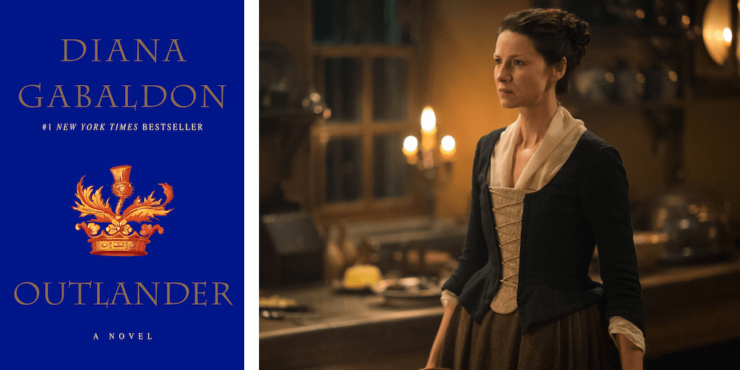
So far, Gabaldon has kept her adaptations limited to one popular and long-running show: Outlander, which since 2014 has been carefully turning her (so far) nine novels into the lush Starz series of the same name. Two of the episodes she’s scripted have aired in full: Season 2’s “Vengeance Is Mine” and Season 5’s “Journeycake,” but as Gabaldon stated in 2021, some of the writing she did for Season 6 ended up being cut or cannibalized due to the COVID pandemic and the pregnancy of star Caitríona Balfe. “The last episode of Season 6 is 608. I wrote Episode 609,” she said. “This script can’t simply be reused at the beginning of Season 7, because it wasn’t structured in the way an opening episode needs to be… They did use a few bits from it…. I did get paid for writing it, though.” The process of scriptwriting, she told Town & Country in 2020, was quite different from what she gets to do as a novelist: “Scriptwriting for television is a great collective enterprise. So while the scriptwriter has a lot of power and can certainly put his or her own personal stamp and a sense of emotion into an episode, you are working from a blueprint, so to speak. [The executive producers] give you this list and say, ‘We need to do all of this.’”
Stephen King
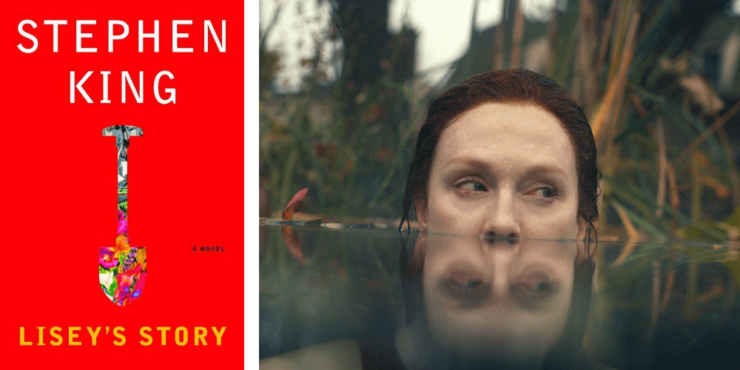
King’s been king of many things during his impressive career, including being involved in various adaptations of his stories or novels. Since 1982, when he wrote the original screenplay for the anthology film Creepshow (which included adaptations of two of his short stories, and also featured his young son Joe and himself in one of the segments), King has taken on roles as actor, writer, producer and director for many of his works. It helps that for many years his stories weren’t taken seriously by many in Hollywood (aside from several forward-thinking directors) and tended to be consigned to the B-movie horror bin. But that slowly changed in the 1980s, by which time King was an established screenwriter. He even wielded enough power in 1997 to assist in the remake of The Shining—providing a poke in the eye to Stanley Kubrick, whose 1982 King-free adaptation had always been a thorn in his side. “The movie has no heart; there’s no center to [Kubrick’s] picture,” he explained in a 2011 TCM documentary, A Night at the Movies: The Horrors of Stephen King. More recently, he was able to adapt Lisey’s Story in 2021, after refusing to let anyone else tackle the very personal novel. “I held on to this one for myself because I thought at some point I would love to be involved with writing it and guiding it to completion, and to be able to do that is a wonderful gift,” he told Entertainment Weekly that year.
Neil Gaiman
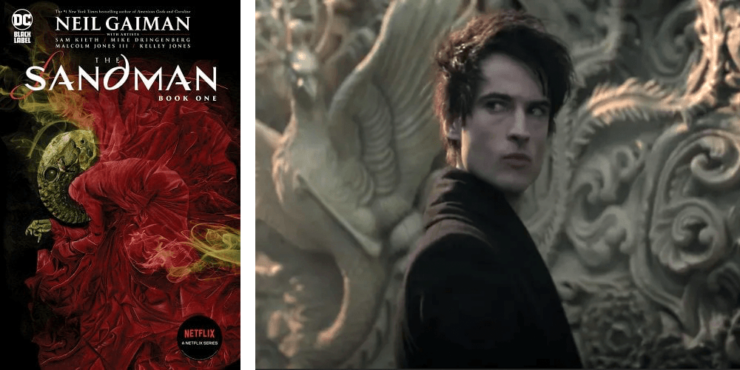
Gaiman has spent his career finding new and interesting outlets for his storytelling talents, ranging from journalism to comics to novels, short fiction, poetry, and, of course, screenplays. He created the 1996 BBC series Neverwhere, which he then novelized. He’s written for TV series like Babylon 5 and Doctor Who, but only recently did Gaiman start tackling his own work, directly developing The Sandman series for Netflix and cowriting the first episode, and creating and writing Good Omens, based on the novel he coauthored with the late Terry Pratchett. Thus far, it seems he’s had a fairly positive experience. “For most of the last three decades, my job has been doing everything I can to kill bad versions of Sandman and persuade people not to make them, and to not be helpful and to not be part of the thing,” Gaiman told Newsweek in 2022. He must have finally found the right time and the right collaborators at last, since both The Sandman and Good Omens are currently heading into their second seasons…
***
These are, of course, only a few of the many authors who have adapted to their own work into TV and movies—tell us about your own favorites in the comments below!
Randee Dawn is a Brooklyn-based entertainment journalist who scribbles about the glam world of entertainment by day, then spends her nights crafting wild worlds of fiction. Her debut novel, Tune in Tomorrow, about a fantastical TV reality show, published in 2022 (Solaris). She’s the co-editor of the anthology Across the Universe: Tales of Alternative Beatles, and has published numerous short stories and novellas of speculative fiction. She writes about the wacky world of show business for Variety, The Los Angeles Times and Today.co, is the co-author of The Law & Order: SVU Unofficial Companion, and curates/hosts Brooklyn’s Rooftop Reading series. Find out more at RandeeDawn.com.










